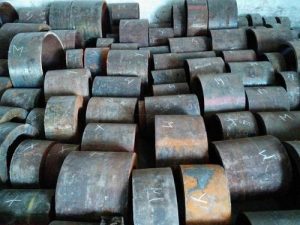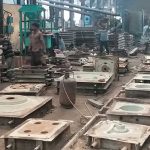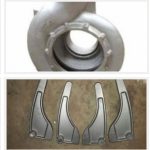A few essential factors to know about alloy steel
Alloy steel may be defined as the steel containing small quantity of one or more elements (apart from carbon) like silicon, manganese, copper, nickel, chromium, titanium and aluminium. And such a combination creates an alloy with certain properties that are not available in typical carbon steel. Alloy steel produced by Alloy Steel Casting Manufacturer is the workhorse of difference industries due to their low costs, simplicity of processing, easy availability and other important mechanical traits. Let’s find out the traits of different alloy steel.
Alloy steel properties
As already discussed, every different alloying element has their own effect and characteristics on the ultimate properties of the steel. And some of such properties may be even improved by alloying in the following ways.
• Stabilizing ferrite – Vanadium, molybdenum, silicon and aluminium have notable effect on lowering the solubility of carbon.
• Carbide forming – Minor metals such as tungsten, chromium, niobium, titanium, zirconium and tantalum form carbides to increase strength and hardness in steel. These alloy steels are best utilised to produce hot work tool steel or high-speed steel.
• Stabilizing austenite – Elements such as manganese, nickel, cobalt and copper help increasing the temperatures between where austenite remains.
• Graphitizing – Nickel, cobalt and silicon can lower stability and consistency of carbides in steel while enhancing breakdown and free graphite formation.
• Increased corrosion resistance – Silicon, aluminium and chromium help forming a protective oxide layer on the surface and thus protecting the metal from deterioration in even harsh environment.
• Decreased eutectoid concentration – Tungsten, chromium, molybdenum, silicon and nickel help to decrease the eutectoid concentration of alloy carbon.
Key agents for steel alloying
Here is the list of most popular alloying elements along with their effects on steel. 
• Boron – According to a leading Alloy Steel Casting Manufacturer, boron works as a hardening agent to improve machinability as well as deformability. It is usually added to completely killed steel. It needs to be added in small quantity to ensure a hardening effect.
• Aluminum – This works as a deoxidizer. It is helpful to limit the growth of any austenite grains.
• Copper – This is often found in steel as a residual agent. It may also be added to ensure hardening properties while increasing corrosion resistance skill.
• Chromium – This is the chief component of stainless steel. At more than 12 percent content, it can notably improve corrosion resistance property of the metal. It can also be used to improve strength and hardenability. It also helps to ensure better and enhanced response to wear and tear resistance as well as high heat treatment.
• Manganese – This helps to increase the strength of the steel at even higher temperature by removing the chance of iron sulfide formation. It is also used to enhance ductility, hardenability and wear resistance.
• Lead – This is virtually insoluble in solid and/or liquid steel. So, it is added to carbon steel through mechanical dispersion while pouring in order to improve the metal’s machinability.
• Nickel – This element plays important role in case of stainless steel. It is added at more than 8 percent content to stainless steel with higher chromium content. It enhances the impact toughness and strength while enhancing resistance to corrosion and oxidation.
These are the few important factors related to alloy steel.




